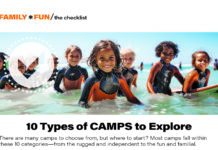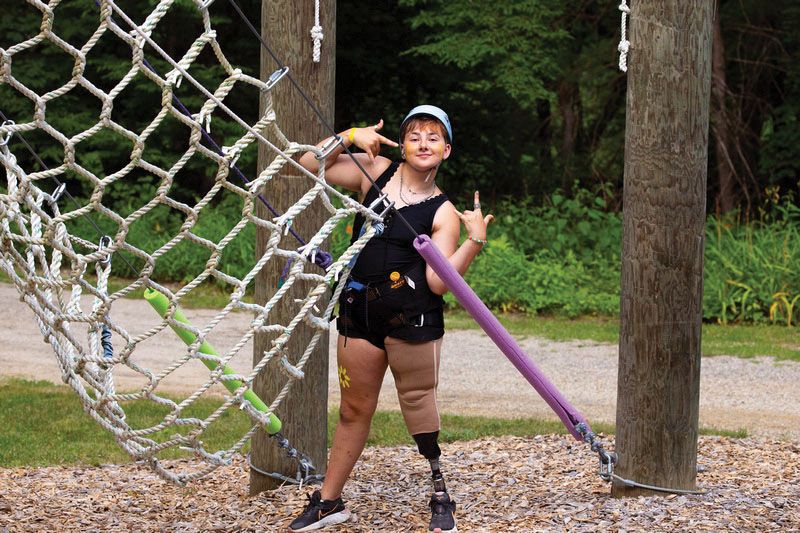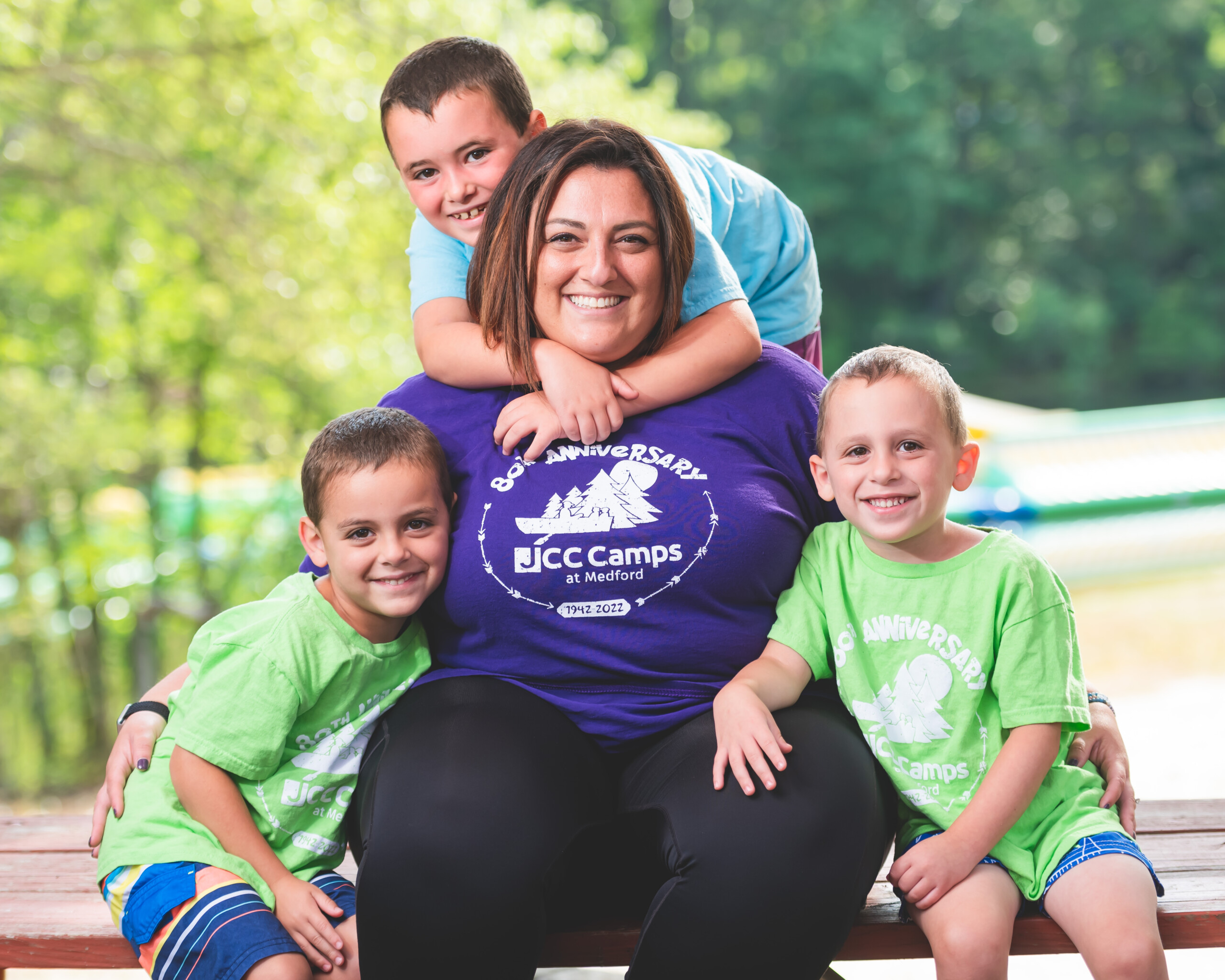Parents worry about safety when they send their kids to camp. States vary widely in their laws and regulations regarding summer camp, so it’s important to ask these questions and get the answers you need for a safe summer camp experience before you sign up.
Counselor-to-camper ratio
“We always get questions about the ratio of campers to counselors,” says Keith VanDerzee, CEO of YMCA Camp Mason in Hardwick, NJ. Appropriate counselor-to-camper ratios vary by age, special needs and whether the camp is a day or overnight camp.
The American Camp Association (ACA) offers voluntary accreditation for camps meeting their standards, and recommends one day-camp counselor for every eight campers ages six to eight. Smaller ratios are appropriate for overnight camps or for campers with special needs, and larger ratios are appropriate for older campers.
Background checks and training
Delaware, New Jersey and Pennsylvania summer camps require staff background checks, but not all states do. “We run criminal record background checks and check the National Sex Offender Public Website for all staff before they work,” says VanDerzee.
Training is also essential. “We cover topics such as homesickness, behavior management, teaching methods, child abuse prevention and emergency procedures,” VanDerzee says. All camp staff should be trained to recognize a medical emergency and to call 911.
Sun and heat protection
Sunburn and heat-related illness prevention should be a priority at camps where children are outdoors. “When kids arrive at our camp they need to be wearing sunscreen and also bring sunscreen,” says Sharon Reynolds, director of summer programs at Tower Hill School in Wilmington, DE. “We reapply at lunchtime each day and before swimming or water activities. If we know a child is prone to sunburn, we’ll have him reapply more often.”
Reynolds explains that older children apply sunscreen themselves with staff supervision, and the staff help younger kids as needed.
At Tower Hill, each camper also receives a water bottle to refill from water coolers throughout the day. Having a cool drink nearby is important during hot weather.
“When kids are happy and playing they don’t always think to go to the water fountain to get a drink, but when they’re carrying water bottles around with them, they tend to drink from them,” says Reynolds.
Water activity supervision
“We swim test all of our kids,” says Reynolds. “If a child says, ‘I know how to swim,’ even if he’s 12, we’ll still swim test him.” Non-swimmers are restricted to the shallow end or the little pool, unless one-on-one with a staff member. In addition to lifeguards, Tower Hill has CPR-certified staff in and on the side of the pool watching the children at all times.
During boating, size-appropriate life jackets should be provided and worn by children at all times and every boating activity should be monitored by a lifeguard and staff.
Safety for high-risk activities
Many camps offer activities that could be dangerous if not properly supervised. At Valley Forge Summer Camp in Valley Forge, PA, campers can participate in marksmanship, rock climbing and grappelling. All instructors are certified in the specific activity and staff-to-camper ratio is kept low to allow for ample supervision during these activites.
Medical emergencies
Ask if there is on-site medical staff for assessment and treatment of minor issues like injuries, allergies or accidents, and when a parent will be called if further treatment is needed.
Camps accredited by the ACA are required to have a licensed physician or registered nurse on site, or be in consultation by phone with one at all times. For camps more than 30 minutes from
emergency medical services, the ACA requires the camp attain certification from a nationally recognized provider of wilderness first aid and CPR/AED training.
Inquiries about allergies and medical conditions should be made during the registration process, and if your child has an issue, explain to the camp how it should be handled. Most camps approach common food allergies like schools — providing allergy-free options at camp meals or snacks and having an allergy-
friendly table at mealtime.
Camp security
“Parents of younger children like that there are only two gates to get into our day camp yard,” says Reynolds. “You have to go through a reception area and sign in to get into the main building on campus.”
Elizabeth Wahlberg, director of summer camps at Valley Forge Summer Camp, says, “We have 24/7 security, and we practice fire drills and take other security precautions.”
Safe transport
Ask if the camp vehicles are regularly evaluated for safety and if the drivers’ records are reviewed each season. Find out if the camp requires criminal background checks for transportation providers and drivers. Check if the camp requires car seats or boosters, and ensures the staff strictly enforces the use of seatbelts whenever your child is in transit.
Once you get positive answers for all of these questions, sign up for camp, relax, and enjoy the summer.
Susan Stopper is a local freelance writer.






